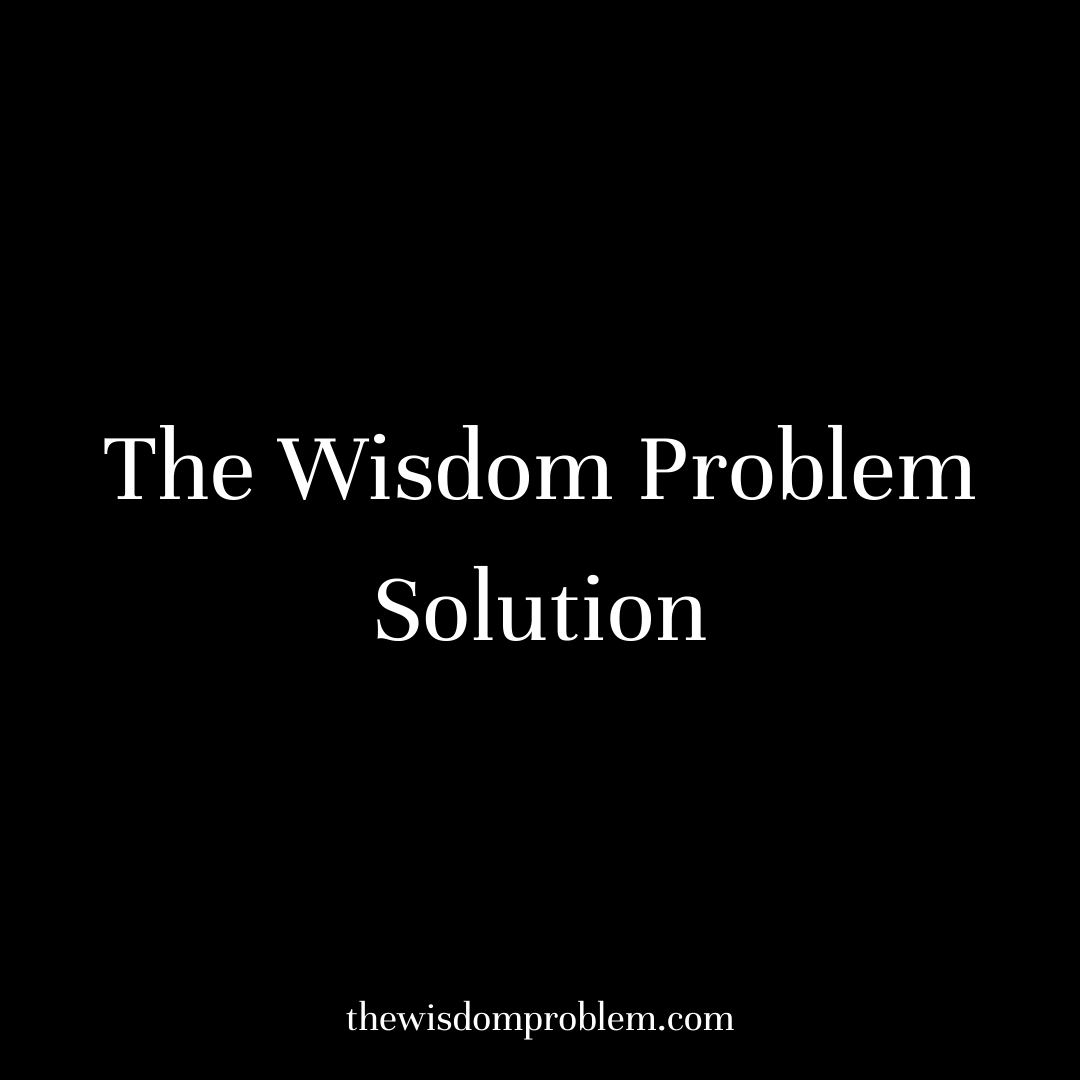The Wisdom Problem Solution
This is a pinned note. It is my current "solution" to the problem.
The wisdom problem is, "Why do I make bad decisions? How do I make good decisions?"
When I sit down to work through a question that arises from this problem, my approach is to start with time, thinking about the extremes of time. This generates perspective. Then I apply my intuition to the question, asking what my feeling is about the truth of my answers. This is a test of authenticity and resonance, and an acknowledgement of what I know already, my accumulated experience and knowledge. Using intuition is because of an awareness that relying only on the explicit thought I can generate at the time of working through a problem exposes me to weaknesses and biases in my cognition. To create action from the problems, I think about how to apply my free will to the answer, "what do I do with this?", because the crux of the wisdom problem is that free will is inconsistent, both in what it decides to do, and in its strength.
My current model of my mind is that "I" am the watcher of my thoughts, and there is a separate deeper part of my mind that presents thoughts, and emotions to "me", the watcher. These thoughts are automatic and come with emotions attached. They are not easily controllable in the moment, but they can be influenced, and my attention can be diverted, and it is in this that free will exists. The direction of attention is the beginning of free will. The attention of the watcher can be directed at a different thought, and the truth of an emotion that comes with a thought can be questioned. Meditation helps this skill, lengthening the time between the presentation of the thought and emotion, and the response of the attention. This is free will in the moment. The automatic thoughts are influenced by what gets attention from the watcher. The repetition of a cycle in which attention is directed, and automatic thoughts are reinforced in a chosen direction is the mechanism of free will. Thinking and actions influence the automatic thoughts. Applying thinking to a problem, taking the actions of writing it down, talking about the problem, and reviewing it over time influences what is automatically presented in my mind, and that is how "I" influence my internal world so that I make good decision and take good actions.
Making good decisions, resulting in good actions is a result of a repeated cycles of thinking; slow and considered, and in the moment, combined with actions. Repeated cycles over time results in and increased likelihood of good decision. Wisdom is a practice.
